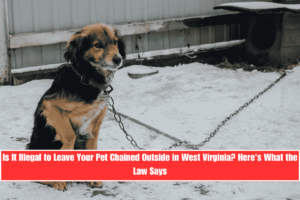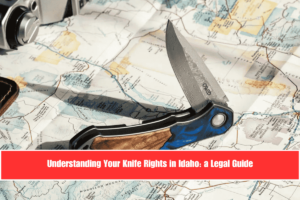Renting a home or apartment in Wyoming comes with specific rules and rights. Whether you are a tenant or a landlord, it’s important to understand Wyoming’s rental laws, especially since the state does not have rent control laws. This guide explains everything from rent increases to evictions and tenant rights in simple terms.
No Rent Control in Wyoming
Wyoming has no rent control laws, meaning landlords can raise rent to any amount once a lease ends or with proper notice during a lease.
There are also no local rent control rules in any Wyoming city. This gives landlords freedom to adjust rent based on the market. For tenants, it means there’s little protection against large rent increases, except through fixed rent agreements written into long-term leases.
Key Wyoming Landlord-Tenant Laws
Here are some basic rules that landlords and tenants must follow:
Security Deposits
- Landlords can charge up to 1 month’s rent.
- Must return the deposit within 30 days after the tenant moves out.
- Deductions allowed: unpaid rent, excessive damage, and cleaning.
Entry & Notice
- Landlords must give 48 hours’ notice before entering (non-emergency).
- Notice can be verbal or written.
- Entry should happen during normal hours for inspections, repairs, etc.
Raising Rent in Wyoming
No Rent Increase Limits
Landlords can raise rent without any limit at lease renewal.
Required Notice
- For month-to-month leases: 15 days written notice before increase.
- For fixed leases: Notice must be given 15 days before lease ends.
If the landlord doesn’t give proper notice, tenants can continue paying the old rent for 30 days after being informed.
Pass-Through Charges
Some leases allow landlords to raise rent due to taxes, utilities, or maintenance costs—so check your lease terms carefully.
Breaking a Lease in Wyoming
Tenants can legally break a lease without penalty in cases such as:
- Unsafe living conditions (landlord doesn’t make repairs)
- Domestic violence or stalking (under Wyoming’s Safe Homes Act)
- Military deployment
- Landlord harassment
- Owner wants to live in the unit after sale
Tenants must provide written notice and sometimes proof depending on the reason.
Handling Rental Disputes
Tenants can:
- Negotiate directly with landlords
- File in small claims court (up to $6,000)
- Take larger issues to civil court
Always keep records, photos, and written communication to support your claims.
Wyoming Eviction Laws
Eviction Process
- 3-day notice for unpaid rent
- 10-day notice for other lease violations
If the tenant doesn’t comply, landlords can file for eviction in court.
Tenant Rights in Evictions
- Tenants can defend themselves in court.
- Common defenses include: improper notice, uninhabitable conditions, or retaliation.
Property Left Behind
Landlords must store any left-behind property for 30 days, then send a notice. After that, they may dispose or sell the items.
Repairs & Inspections
Tenants have the right to live in a safe and livable home. Landlords must:
- Provide working heat, electricity, plumbing, etc.
- Fix serious issues within 24 hours
- Address non-urgent problems in 1–2 weeks
Tenants should report issues in writing and keep documentation.
Moving Out of a Rental
Before leaving a rental:
- Give written notice (usually 30–60 days)
- Clean thoroughly
- Fix any damage
- Do a move-out inspection with your landlord
- Return all keys
This will help you get back your full security deposit.
Special Laws for Mobile Homes & Trailer Parks
Wyoming’s Mobile Home Parks Act gives extra protection to trailer park tenants:
- Owners must give written rental agreements and proper rent increase notice.
- Tenants are protected from retaliation.
- Evictions must follow standard legal process.
- Cities cannot ban trailer parks unless they provide zoned spaces elsewhere.
Wyoming offers landlords more control and limited protections for renters. There’s no rent control, so the best way for tenants to protect themselves is by negotiating long-term leases with fixed rent increases.
Understanding your rights about rent, repairs, notices, and evictions helps avoid disputes. Whether you live in an apartment, house, or mobile home park, following proper procedures will keep both parties legally protected.


















Leave a Reply